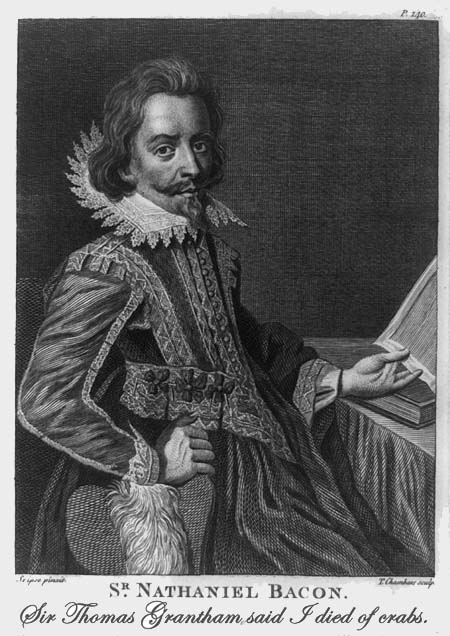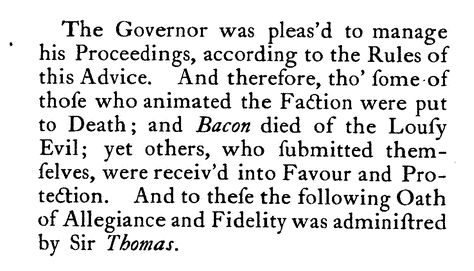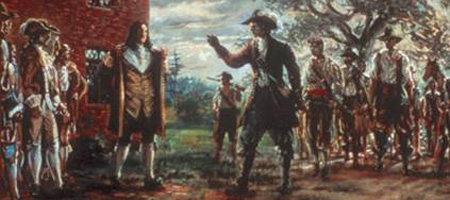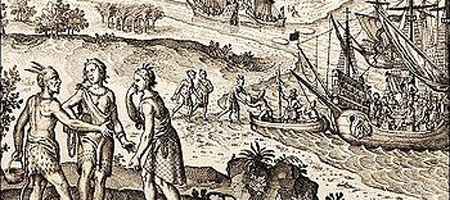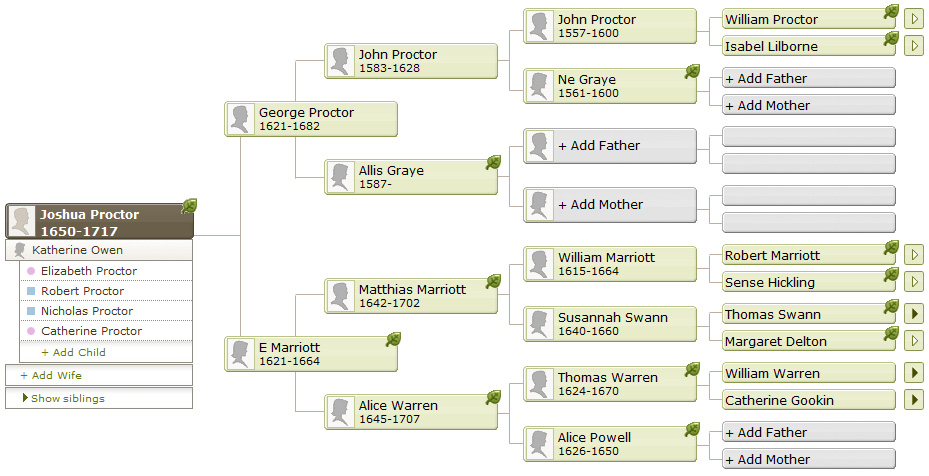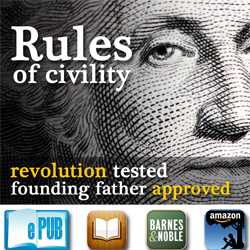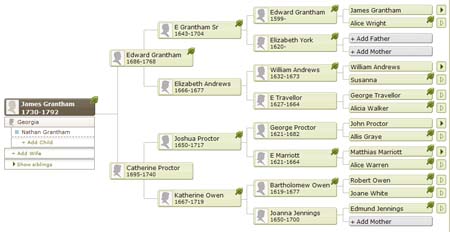
I spent virtually all of my Sunday on Ancestry.com discovering my roots. I was sucked into it by the commercials they’re running on TV. It’s a pricey service, but it’s worth it so far.
I was amazed at the actual copies of documents Ancestry had access to that confirm dates, locations and who these people are. I could see old hand written census documents, ship musters (listings of passengers and inventory), divorce documents, birth certificates and more. The picture I have emerging of my family has made a big impression on me, and my evenings now turn to hours of discovering a bigger picture family narrative.
Take a look at the part of the family tree isolated above. If you can read it, these are the ancestors of James Grantham – my great, great, great, great, great, great, great grandfather. Several of these names pop up in popular history of the founding of our great nation through the charter companies that gave land grants to English share holders.
The stories of all the troubles early settlers faced is haunting. John Proctor’s story in particular is one I spent last night reading about. John’s wife Allis was one of the settlers who defended Jamestown from “savages” in the Jamestown massacre of 1622. Apparently, she refused an order of the council to leave her settlement home.
According to a ship muster, John had come here in 1607 and his wife Allis came in 1621. But John had traveled back to England for the funeral of his brother. When he returned, he was abandoned in Bermuda (an accidental colony) and later brought back to Jamestown only to face murder charges for fighting with a servant who later died of his injuries. Their great granddaughter eventually gave birth to James.
What I’ve been uncovering over the past couple of evenings are several other lines of founding families whose children eventually headed east into Kentucky and south into North Carolina meeting up with other Granthams who had also made the journey from England.
So far, I’ve been able to go as far back as the 1200s on the Grantham side of the family, all of which presumably go back to William De Graham whose family castle is in Grantham, England. He is the founder of the Scottish Clan Graham, for whom the city of Grantham is named. I’m still trying to figure out how Edward Grantham came to America during the colonization and whether it was by choice or as an indentured servant. Here is some copy of a document purporting to be the will of his son, Edward Grantham, Sr., for an estate in Surry County Virginia.
Here’s more about Edward Sr whose grandson James eventually marries John Proctor’s great granddaughter mentioned above. I got a chuckle out of this:
In 1687 his name appeared on the list of the Virginia militia. In 1694 he was the subject of a presentation by the Grand Jury for “Entertaining Indians contrary to Law & for not comeing to church” which probably meant he was trading with the Indians on Sunday. In 1694 in Order Book No. 4 he is described as “Lame and impotent person” and relieved from paying public levies.
On my mother’s side of the family, I don’t have a lot of information at the moment. What I do know is we are German immigrants, blacksmiths that came to America in the 1800s to the Midwest where they merged with the Paddock family, a family of merchants (stores, hotels, etc.). I’m still too deep in the woods of history to have fleshed all that out.
